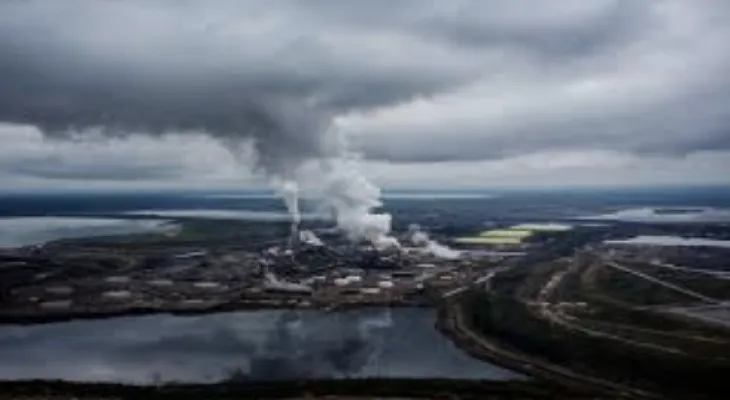Search here
Newspaper
Search here

Arab Canada News
News

Published: March 9, 2022
With rising oil and gas prices, and the United States banning the import of all Russian oil products, energy analysts fear that the resource sector in Alberta will respond quickly.
US President Joe Biden announced the ban on Tuesday, describing it as "another strong blow to (Russian President Vladimir) Putin's war machine" while "Americans rallied to support the Ukrainian people."
Meanwhile, Alberta Premier Jason Kenney, speaking at the CERAWeek conference in Texas on Tuesday, said Alberta is the natural solution to the current energy crisis.
Explaining, "With the third largest confirmed and potential oil reserves on earth, exceeding 180 billion barrels, and one of the largest confirmed and potential natural gas reserves, we (Alberta) represent the natural answer to the global energy security challenge.
Kenney also continued to call on the US government to revive the Keystone XL pipeline project to bring Alberta oil to US refineries.
But on Tuesday, TC Energy Corporation rejected this, with Reed Vace, a media relations specialist, saying: "The Keystone XL pipeline project has been terminated and will not continue."
The Russian invasion of Ukraine last month has led to a major shift in global energy security, and analysts point to Alberta as a potential "pillar" or stable supply, but it lacks enough time to implement that.
Kevin Birn, a crude oil market analyst in Calgary at S&P Global Commodity Insights, said: You could say that (Alberta's energy resources) will contribute to greater global stability in the cycle, and that is not what we are in today. Regarding this crisis, there is a lot of pressure for short-term responses and short-term solutions.
Explaining, Birn says the current high-price environment will not be sustainable in the long term as the North American benchmark swings to $130 per barrel, but it shows strong demand for crude oil.
Birn also said: "We see that the world still largely runs on hydrocarbons, and oil and gas are considered fundamental pillars for quality of life in the medium term."
Explaining, Alberta produces a high-sulfur crude that is refined in the US Midwest and Gulf Coast, and although production could increase in Canada, Alberta faces significant challenges in filling the market gap by excluding Russian oil.
He adds that transportation remains an issue, as pipeline and rail capacities from Alberta to the US are limited.
Additionally, Birn says the energy sector in North America has recently shifted to the idea of energy transition, with producers looking at a long-term demand scenario where renewable energy sources take a bigger share and the possibility of eroding (oil) demand in the long term."
On the other hand, gasoline prices at distribution stations shocked Canadian drivers as a direct result of the Russian invasion of Ukraine, and a retail energy analyst in Calgary says it will continue to rise over the next few months.
Gasoline fuel prices have risen nationwide to a national average of $1.80 per liter.
Vijay Muralidaran, a consultant at Kalibrate, which collects funds, said: Gasoline price and consumption data indicate technically that what you see today in gasoline happened in February ... so you won’t see any drop in gasoline prices for at least a month and a half, in my opinion."
Apparently, energy companies will look to the Middle East to buy oil, but Kenney encouraged them to instead look to Albertan oil because "the trip to Calgary is cheaper than the trip to Riyadh (the capital of Saudi Arabia)."
Kenney also promoted Alberta's energy resources as coming from a politically stable region compared to other oil-producing areas.
It is noteworthy that Russia produces an estimated 10 percent of the crude and products used worldwide.
Comments